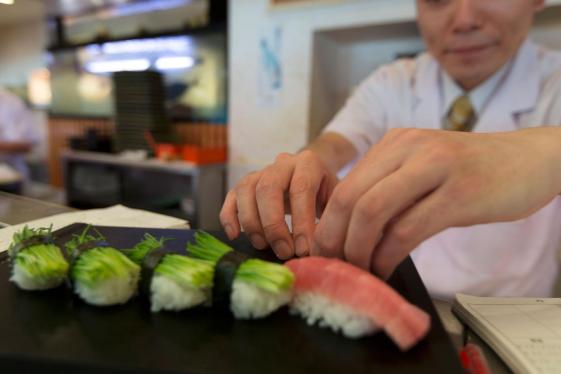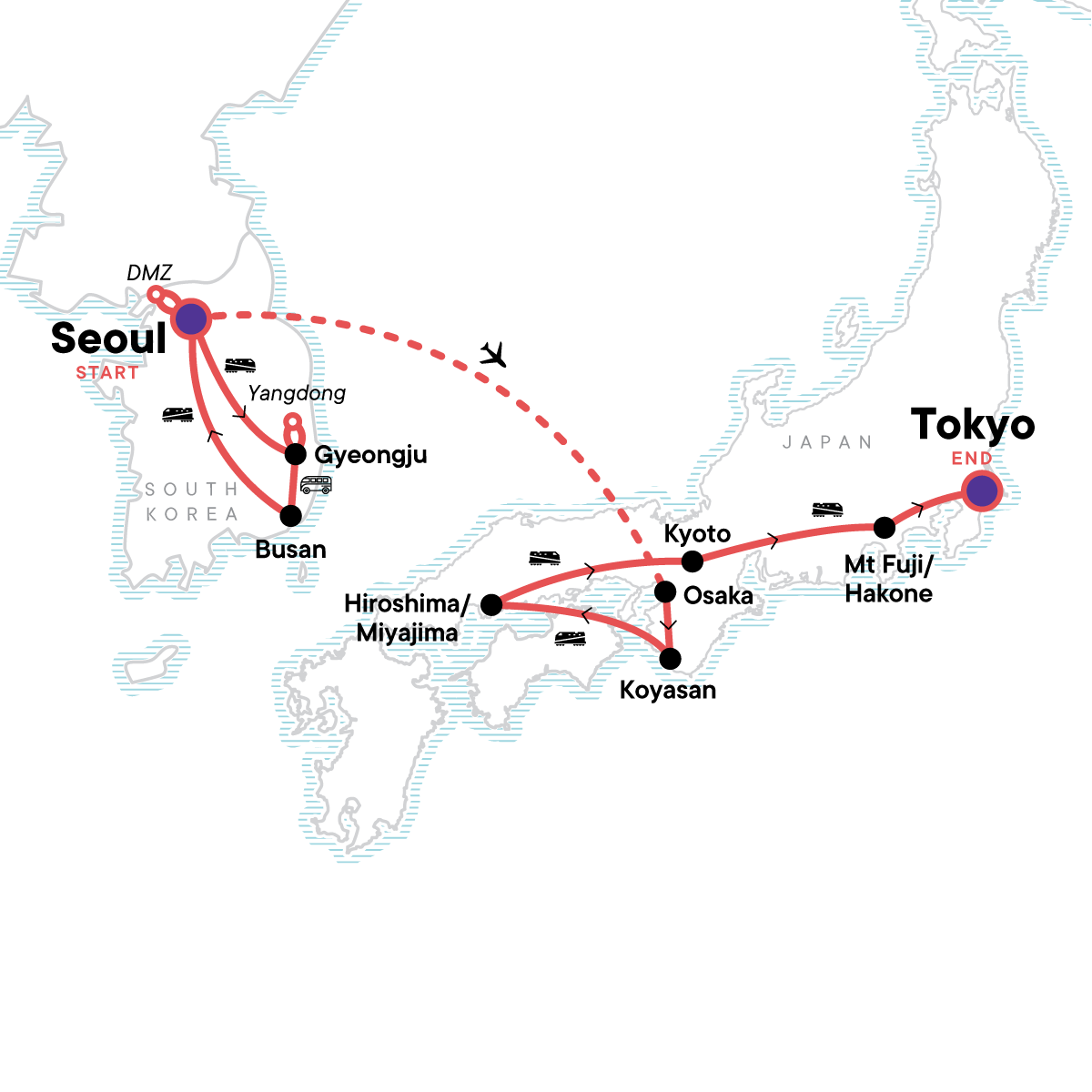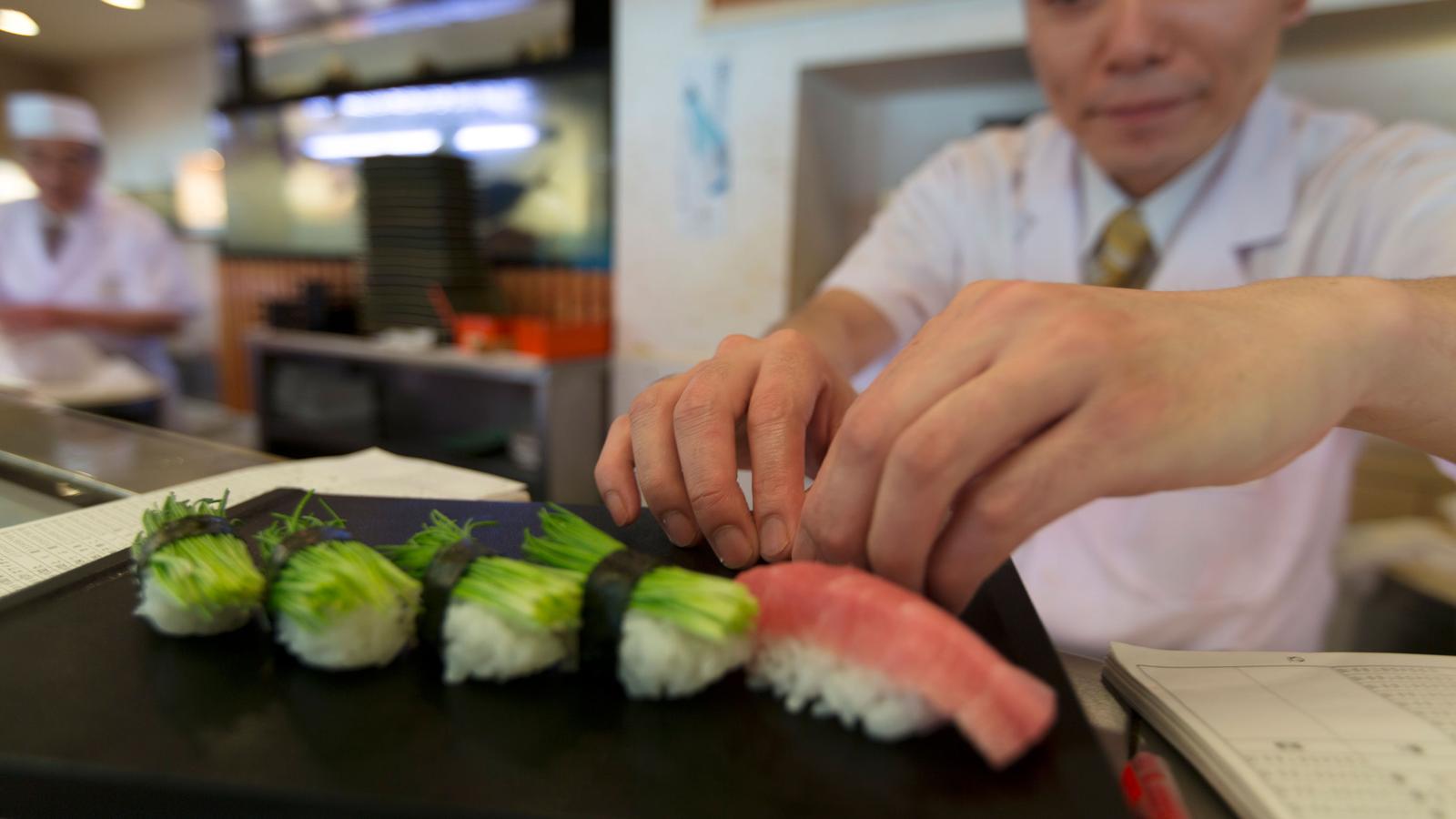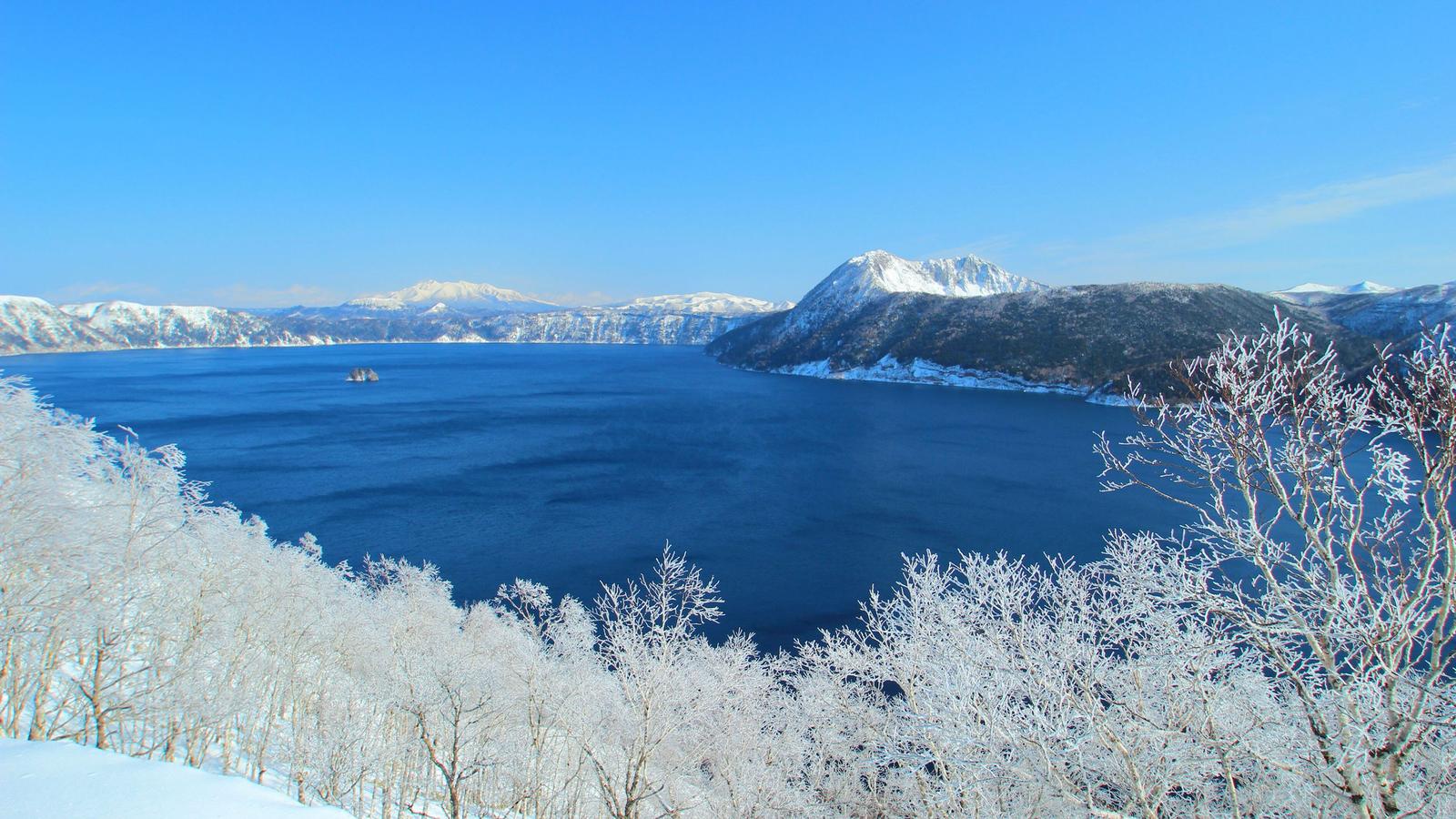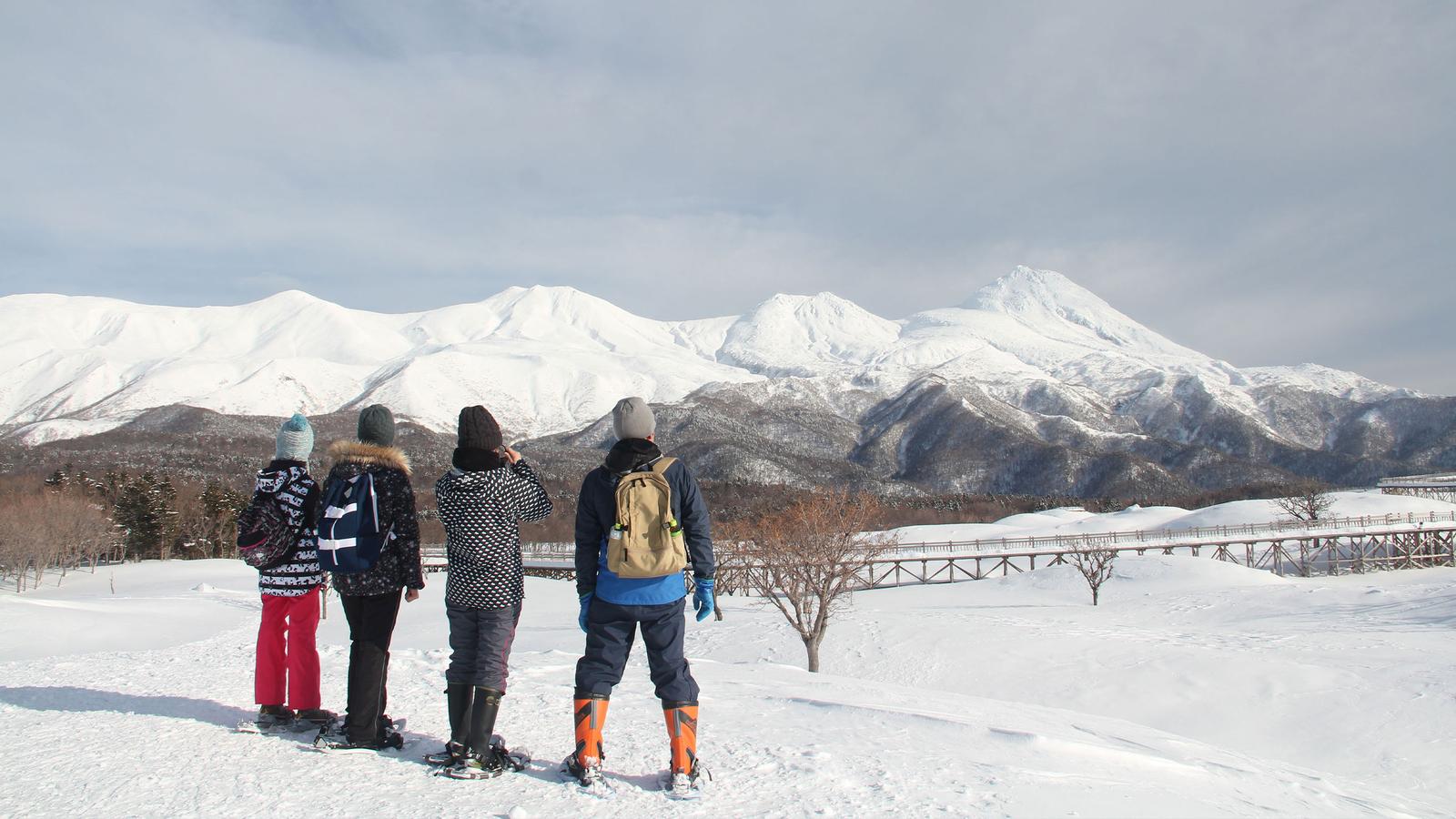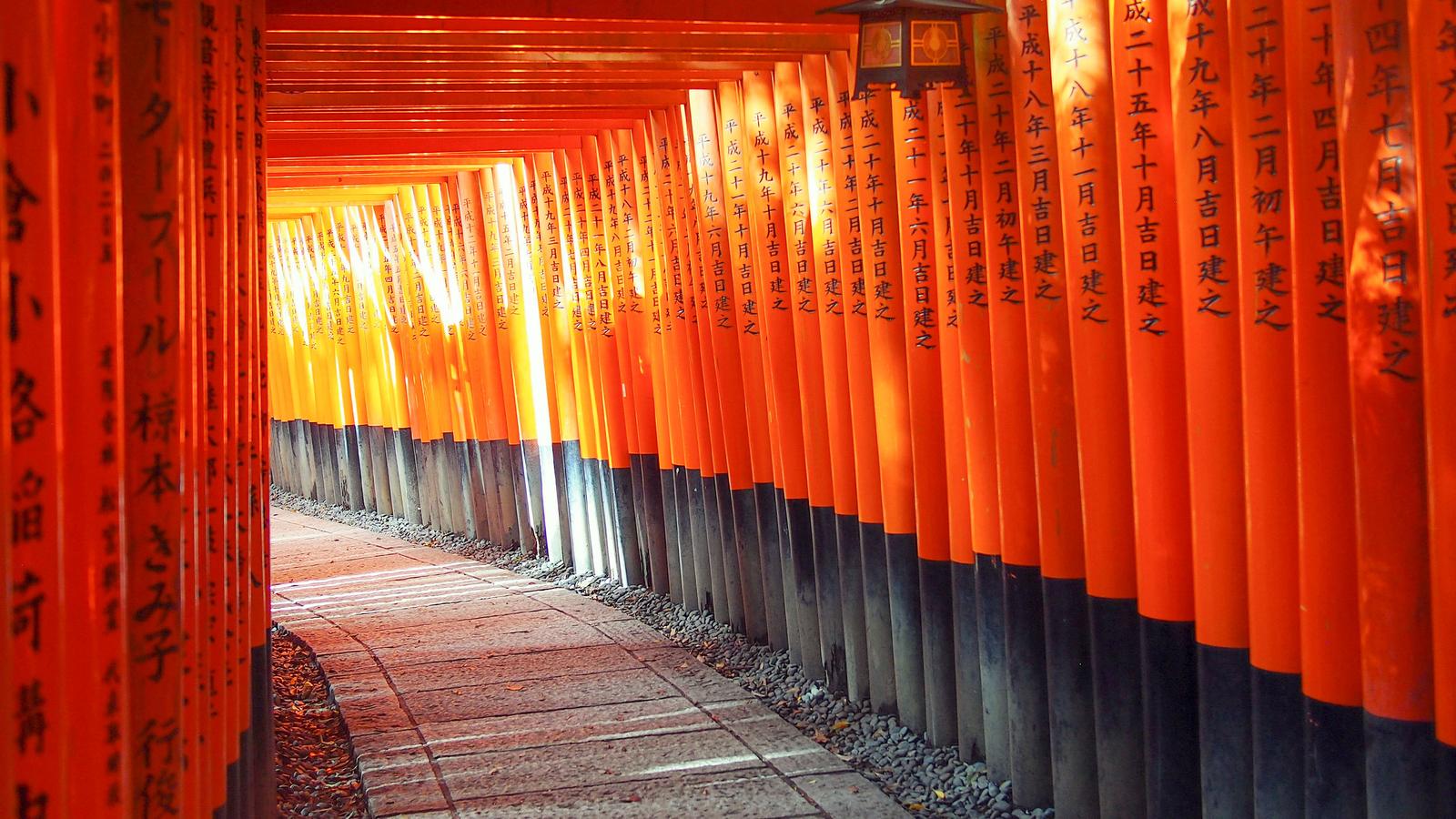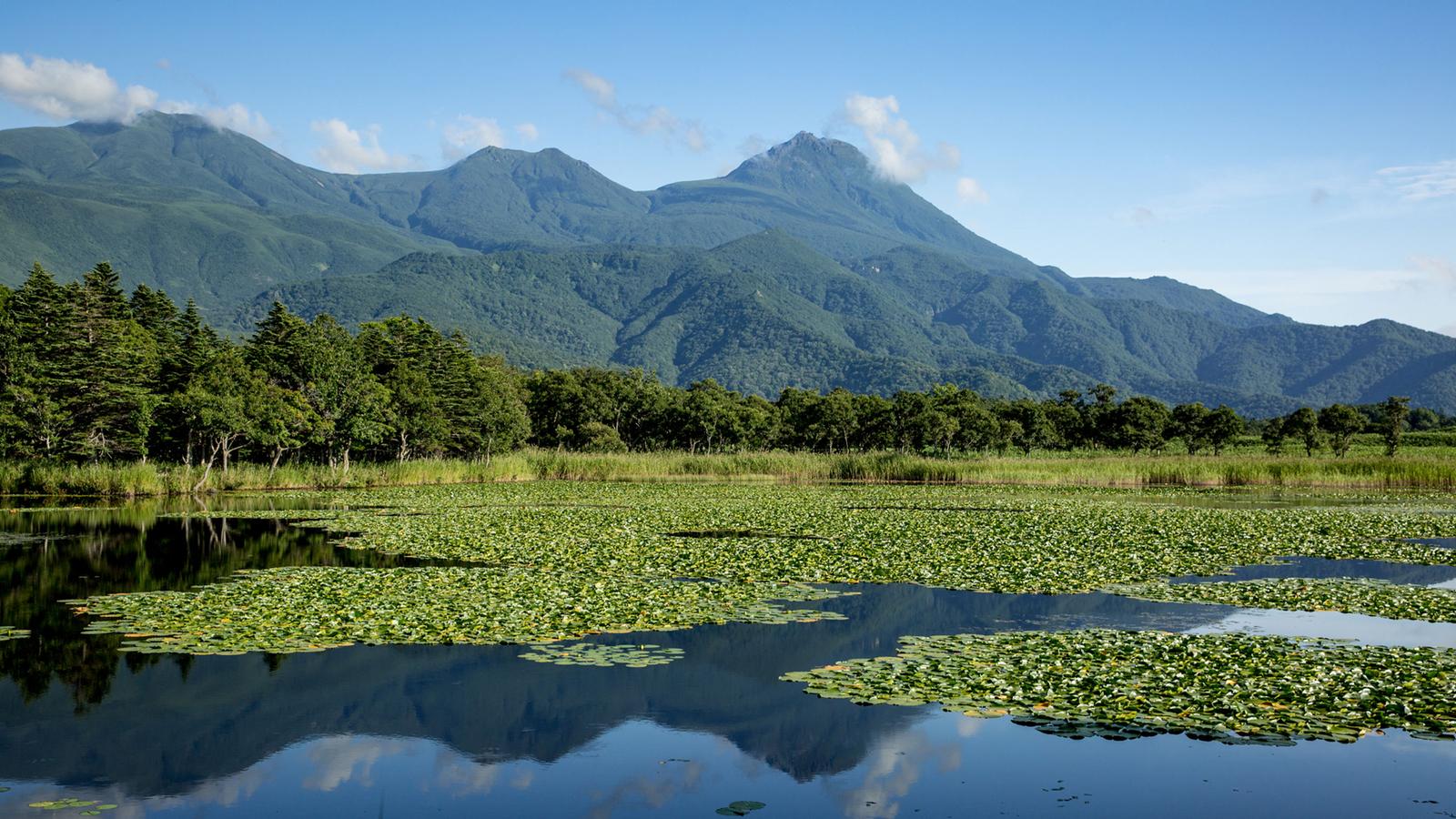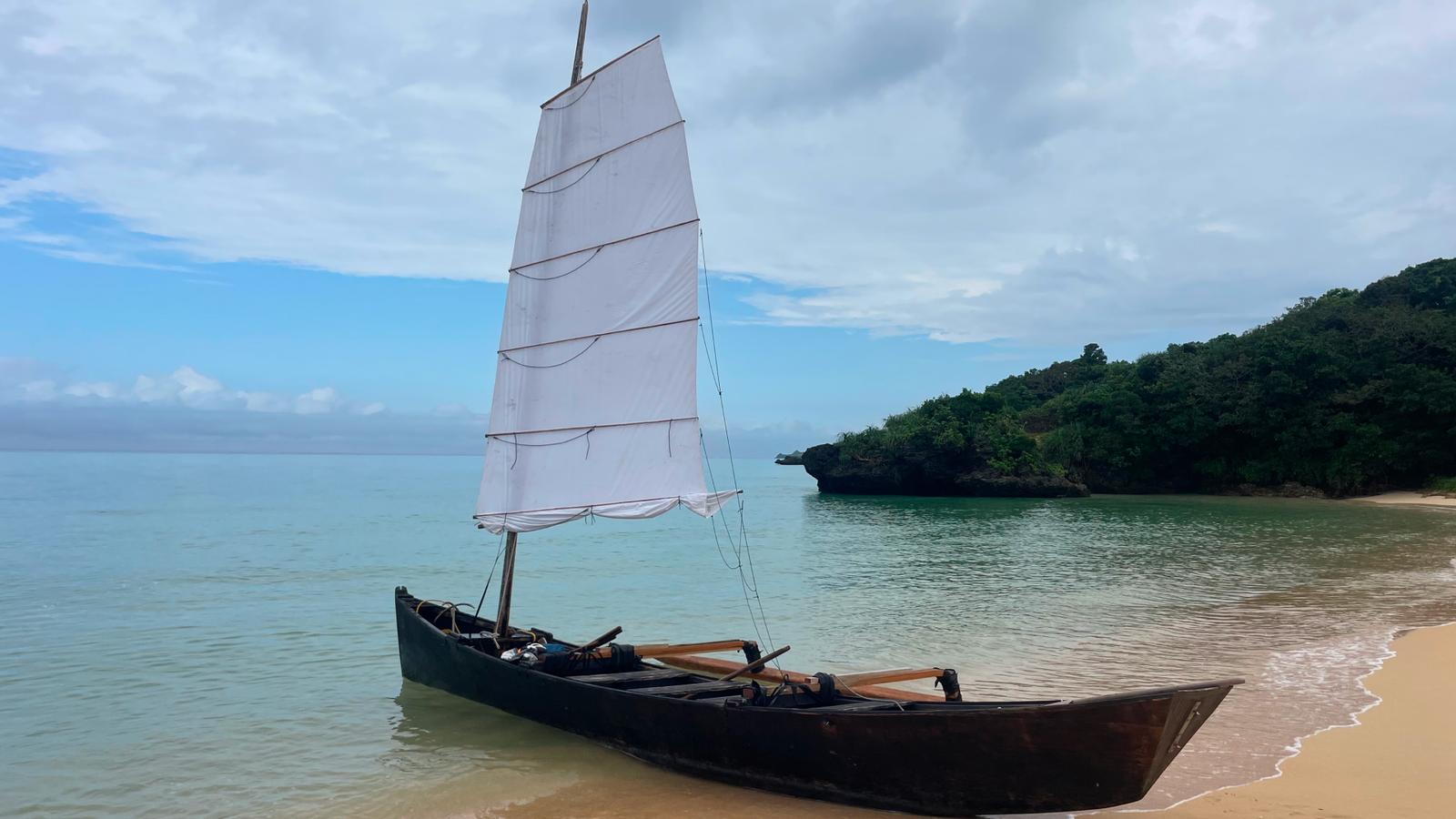Korea & Japan Encompassed
£4,223 was £4799
Discount: 12%
Offer end: Aug 31 2025
Duration: 16 days
Begins: Seoul
Ends: Tokyo
Trip Code: AKKJ
From
£4,223 per person
Overview
- Your Welcome Moment: Welcome Moment - Meet Your CEO and Group
- Your Local Living Moment: Overnight Temple Stay, Gyeongju-si
- Your Local Living Moment: Overnight in Mount Kōya Temple, Kōyasan
- City tour of Seoul
- DMZ visit
- City tour of Gyeongju
- Yangdong Folk Village visit
- Haedong Yonggungsa Temple Visit
- City tour of Busan
- Haeundae Beach and Dongbaek Island (APEC House) Visit
- N Seoul Tower Visit
- Namdaemun Market Visit
- Hiroshima Peace Park and Museum visit
- Miyajima Island excursion
- Nijo Castle and gardens visit
- Gion walk
- Fushimi Inari shrine visit
- Lake Ashino-ko boat ride
- Traditional kaiseki meal
- All transport between destinations and to/from included activities
Hotels (13 nts), mountain monastery (1 nt, shared facilities) temple (1 nt).
10 breakfasts, 3 dinners
Allow USD555-725 for meals not included.
Plane, Bullet train, tram, ferry, public bus, walking.
CEO (Chief Experience Officer) throughout, local guides.
Full Itinerary
Departure Dates
Itinerary Notes
Luggage size restriction – Effective from May 2020 onwards
All G Adventures tours in Japan use the world-famous Shinkansen bullet trains, which have a restriction on maximum luggage size. Your luggage must be less than 160cm in total. This is roughly the size that most airline companies consider as "carry-on baggage" and allow in overhead storage compartments.
We strongly recommend bringing a day pack or backpack to use during the day, in addition to your carry-on sized luggage. Please see “What to take” under Tour details for more information.
Day 1 : Seoul
Welcome to Seoul! As fellow travellers are arriving throughout the day, there are no planned activities until a group meeting at 6 pm. Check into the hotel and enjoy the city.
After the welcome meeting, join your CEO for an orientation walk down Cheonggyecheon Stream to learn about Seoul while walking past small waterfalls and nearly two dozen overhead bridges. Then, enjoy the dense grid of streets found in the bustling neighbourhood of Myeongdong which is packed with people at all hours of the day looking to enjoy some of the best shopping, street food, and nightlife in all of Korea.
Opt for a group dinner to end your first night!
Seoul Orientation Walk
Enjoy a brief walk with your CEO who will give you some tips on finding things like supermarkets, main squares, and ATMs. You'll be taken through Cheonggyecheon Stream which is an 8.4 kilometre (5.2 mile) waterway and public space that runs through the heart of downtown Seoul. Myeongdong is another popular spot you'll hit on your orientation walk. This exciting district features street food carts, major shopping malls, and entertainment.
Welcome Moment - Meet Your CEO and Group
Your opportunity to meet your CEO and fellow travellers, and learn more about your tour. Opt to join the group for a local meal afterwards. Don't forget to see the notice in the lobby (or ask reception) for the official time and place to meet up with the group.
Acommodation
Hotel Prince
Acommodation
Hotel Prince
Day 2 : Seoul
Sit back and relax on a private bus and enjoy a tour of the bustling metropolis where modern skyscrapers, high-tech subways and pop culture meet Buddhist temples and street markets. Visit Gyengbokgung Palace, the National Folklore Museum, Bukchon Hanok Village and Insadong alley.
After exploring the city, opt to see a show, explore a local museum, or hit the pavement and eat your way through street markets trying local fares such as bibimbap, soondae, and kimchi.
Gyeongbokgung Palace
Visit Gyeongbokgung Palace, the main royal palace of the Joseon Dynasty built in 1395. The palace has been destroyed many times over, but more than 50 per cent of the buildings are still standing or are restored. The complex is also home to the National Palace Museum and the National Folk Museum.
Insadong Alley
Explore the narrow and hidden alleys of one of the most memorable places in Seoul. Now filled with antique shops, galleries, tea houses and traditional restaurants, this area once housed the royal studio for painters during the Joseon Dynasty.
National Folklore Museum
Located within the grounds of the Gyeongbokgung Palace, learn about the history and traditions of the Korean people during the Joseon era.
Bukchon Hanok Village Exploration
Be transported back 600 years into Seoul's past while walking through Bukchon Hanok Village, which boasts the largest cluster of privately owned traditional Korean wooden homes (hanok) in Seoul. Keep an eye out for the half-dozen or so alleys that have beautifully restored architectural features like small courtyards, decorative outer walls, and dark tiled roofs.
Seoul City Tour
Enjoy a bus tour of the bustling capital of South Korea. Visit different areas of the city including Gyengbokgung Palace, National Folklore Museum, Jogyesa Temple, Bukchon Hanok Village and Insadong alley.
Free time:
Head out and explore.
Acommodation
Hotel Prince
Optional Activities - Day 2
Gwangjang Market Visit
Gwangjang Market is one of the oldest and largest traditional markets in South Korea, with more than 5,000 shops. Famous for its fabric, local treasures, and noted to be one of the best places to go for authentic Korean street food in Seoul, you don't want to miss Gwangjang Market.
Seoul Museum of History Visit
Really get to know Seoul with a stop at the Seoul Museum of History, which highlights each segment of the city's past from the Stone Age to present day. Discover one of the museum's recent creations – a large floor map of Seoul, great for plotting out your next steps!
Acommodation
Hotel Prince
Breakfast
Day 3 : Seoul/Gyeongju-si
After breakfast, board a high speed bullet train for a relaxing morning ride through the countryside to Gyeongiu. Once the group arrives to this old capital city for 1,000 years, they will experience an overnight stay in a local temple. During the stay the group will learn about temple etiquette, watch a monk martial arts performance, experience the daily prayer ritual and a temple style dinner.
Stay in rooms called Ondol. These rooms are very traditional, heated to be cozy and comfortable, with beds made up directly on the floor. The rooms here are multi-share, divided up by male and female rooms. Enjoy a traditional dinner and breakfast during the stay.
Have the opportunity to learn about temple etiquette, experience the daily drum and bell ritual and take an easy hike up to the only stone cave temple in Korea for morning meditation.
Bullet Train
Get to your next destination faster than the speed of light (ok maybe not that fast) aboard a high-speed train.
Overnight Temple Stay
Stay in rooms called Ondol, which are very traditional and heated to be cozy and comfortable with beds made up directly on the floor. The rooms here are multi-share, divided up by male and female rooms. Enjoy a traditional dinner and breakfast during the stay.
Acommodation
Golgulsa Temple Stay
Acommodation
Golgulsa Temple Stay
Breakfast | Dinner
Day 4 : Gyeongju-si
Enjoy a peaceful morning meditation, martial arts practice, and drum and bell ritual before exploring in Gyeongiu. On the city tour visit to the UNESCO site of Bulguksa Temple located on the slopes of Mount Toham and admire the national treasures there, such as Dabotap and Seokgatap stone pagodas, Cheongun-gyo, and two gilt-bronze statues of Buddha. Afterwards, experience the oldest surviving astronomical observatory in Asia, Cheomseongdae Observatory, and the surrounding Royal Tombs.
Private Vehicle
Settle in and scan the scenery from the convenience of a private vehicle.
City Tour of Gyeongju
Visit sights around Gyeongju on an included tour. See the UNESCO site Bulguksa Temple, a head temple of the Jogye Order of Korean Buddhism and encompasses seven National treasures of South Korea.
Cheomseongdae Observatory
Nestled in the heart of Gyeongju, the capital of the former Silla Kingdom, Cheomseongdae may not appear to be a monumental landmark. But this observatory tower that dates back to the seventh century is actually the oldest existing astronomical observatory in all of East Asia. Cheomseongdae was used for observing the stars in order to forecast the weather in the ancient scientific hub of Gyeongju.
Daereungwon Tomb Complex
The Daereungwon Tomb complex in Gyeongju holds 23 tombs that are found inside of large mounds. The complex is beautiful with its rolling mounds and gardens, but the real treat can be found inside the tombs, the most famous being Cheonmachong and Hwangnamdaechong. Each tomb holds thousands of relics that gives us a window into the Silla Dynasty and its royal family. The contents of these tombs are over 1,500 years old and a great treasure to anyone who enjoys Korean history and artistic beauty.
Acommodation
Swiss Rosen Hotel Gyeongju
Optional Activities - Day 4
Anapji Pond
Also known as 'Donggung Palace and Wolji Pond', it was once a part of the royal palace complex of the ancient Silla dynasty. A long-term renovation project beginning in the early 19070's that excavated thousands of relics from the pond has brought Anapji back to its former glory. Anapji Pond is popularly visited in the evening for its beautiful night views when everything is lit up and reflecting amongst the waters.
Bike Rental - Gyeongju
Cycling is a great way to see the city and squeeze more sights into a day. Ride past Cheomseongdae Observatory, Anapji Pond and much more!
Acommodation
Swiss Rosen Hotel Gyeongju
Breakfast
Day 5 : Gyeongju-si/Busan
Travel by bus to Busan. Along the way enjoy a day trip to Yangdong Folk Village, a 500-year-old UNESCO site located in Gyeongju National Park, to get a feel for life during the early Joseon Dynasty. Afterwards, continue on to the picturesque 14th century seaside temple hidden in the rocks - Haedong Yonggungsa. After exploring the temple, check in to your hotel and get your bearings with an orientation walk on Haeundae Beach and Dongbaek Island (APEC House). Spend the evening getting to know colourful Busan, opt to treat yourself at a Jjimjilbang spa or sing your heart out at a popular karaoke bar.
Private Vehicle
Settle in and scan the scenery from the convenience of a private vehicle.
Yangdong Folk Village
Get a fascinating look into life during the Joseon Dynasty on this visit to the Yangdong Folk Village. Founded in the early 1400s, the village boasts well-preserved buildings and has more than 160 homes displaying traditional Joseon architecture within a gorgeous natural setting.
Haedong Yonggungsa Temple Visit
Originally built in 1376, this picturesque, cliffside Buddhist temple overlooks the East China Sea. Opt to grab a bizarre local snack at the traditional market. Legend foretells that should you pray here, at least one of your wishes will come true.
Acommodation
Felix Hotel by STX
Optional Activities - Day 5
Busan Tower Observatory
With incredible views day or night, Busan Tower is a symbol of Busan that stands proudly 69 m above sea level at a height of 120 m and allows for 360 degrees of viewing pleasure! Fun fact: the top of the tower is modelled after the baldaquin of Dabotap Pagoda in Bulguksa Temple.
Jjimjilbang
Treat yourself in one of Busan's jjimjilbans, a Korean spa bath house, with an array of hot spring tubs to rejuvenate mind, body, and soul.
Karaoke
You can't leave Korea without participating in the popular tradition of noraebang, karaoke rooms. Sing your heart out!
Acommodation
Felix Hotel by STX
Breakfast
Day 6 : Busan/Seoul
In the seaside city, Busan, visit the bustling Jagalchi fish market, Gukjesijang market, Yongdusan Park, and the colourful Gamcheon Culture Village before traveling back to Seoul. After arriving in Seoul by train, check out Korea's oldest traditional market - Namdaemun Market. Then make your way by cable car to N Seoul Tower to see this beautiful landmark and opt to make the trip up to the observation deck. Spend the rest of your day in Seoul opting to see Banpo Bridge, the floating islands, or hanging out in the Gangnam district.
Jagalchi Fish Market
Discover this market and major attraction at Nampo Port. Wander through the rows of stalls selling everything you can dream of from the sea. Watch as locals haggle for the best price and fishmongers hawk their wares.
Yongdusan Park Visit
Visit Yongdusan Park, home to more than 70 different types of trees, and see the 118m (387 ft) high Busan Tower. The park's unique shape is said to look like a dragon's head.
N Seoul Tower Visit
Take the cable car to visit the most iconic landmark in Seoul! Located at the top of Mt Namsan, and standing at 480m above sea level, what used to be a broadcasting station before it was open to the public, is now a beautiful observatory. If you'd like to go up the tower to the observatory an additional fee is required.
Namdaemun Market Visit
Dating back to 1414, this is Korea's oldest traditional market and it's largest, with over 10,000 vendors spanning several city blocks. Get ready to shop!
Gukje Traditional Market
Gukjesijang or Gukje Market is nestled near Biff Square, a well-known modern movie district in Busan. The market once was a place for refugees to earn a living over the period of the Korean War. Now, it's a bustling international market where loads of food, home goods, clothes, souvenirs and more can be found.
Bullet Train
Get to your next destination faster than the speed of light (ok maybe not that fast) aboard a high-speed train.
Gamcheon Culture Village
Explore the pastel-coloured village of Gamcheon, nestled in the side of a mountain, with uniquely painted houses, murals, cafes, and shops.
Acommodation
Hotel Prince
Optional Activities - Day 6
N Seoul Tower Observatory
Namsan Seoul Tower Observatory allows for an incredible 360 degrees panoramic view of Seoul. The top of the tower is 480m above sea level, including Namsan Mountain (243m) and the tower’s own height (236.7m). It has quickly become a well-known landmark in Seoul and has appeared in lots of smash-hit K-dramas and movies.
Gangnam District Visit
Gangnam has plenty to do and see in this historically rich, fast-developing neighbourhood. Gangnam Station is the busiest subway station in Seoul and has a huge underground shopping centre, so feel free to shop until you drop. Choose to visit Bongeunsa, a Buddhist Temple in the centre of Gangnam, or enjoy the nightlife and restaurants in this area.
Floating Island Visit
The floating island is a culture complex made up of three man-made floating islands located near one end of the Banpo Bridge. LED lights surround the islands and create a fantastic night view - a must see if you're in Seoul!
Banpo Bridge Rainbow Fountain
Banpo Bridge is home to the Moonlight Rainbow Fountain Show and is the world's longest bridge fountain. Nearly 10,000 LED lights and 380 water spraying nozzles make up this beautiful show of water, music, and lights. During the day, the fountain shows a hundred different configurations meant to evoke waving willow branches and willow leaves. When the sun goes down, the fountain is illuminated as it sends out dancing, rainbow-coloured jets of water in the air in synchronization with music.
Acommodation
Hotel Prince
Breakfast
Day 7 : Seoul
Visit the Demilitarized Zone (DMZ), founded in 1953, separating North and South Korea. With over a million soldiers on watch each day, it is one of the last remnants of the Cold War. With a buffer zone 4km wide and spanning 250 km long there has been very little development in the area, therefore nature and wildlife have pretty much taken over. Spend about 3-4 hours visiting the Demilitarized Zone, then head to The War Memorial of Korea. Later, return back to Seoul for another night in the city.
Opt to visit the Samsung Leeum Contemporary Gallery, explore the Itaewon neighbourhood, or prebook the Kimchi making and Hanbok experience.
Private Vehicle
Settle in and scan the scenery from the convenience of a private vehicle.
The War Memorial Hall of Korea
If you love history - dive right into The War Memorial of Korea. The memorial building serves to exhibit and memorialize the military history of Korea and preserve materials related to the Korean War. Divided into indoor and outdoor exhibits containing about 9,000 artifacts, there sure is a lot to see here!
Korean Demilitarized Zone (DMZ) Visit
Visit the Demilitarized Zone (DMZ) the de facto border between North and South Korea, which cuts the peninsula in half. Created in 1953, it is the most heavily militarized border in the world.
Acommodation
Hotel Prince
Optional Activities - Day 7
Kimchi & Hanbok Experience
An instructor will walk you through the Kimchi making process, after which you will make your own with various seasonings to be made to your liking. Also, choose to try wearing various kinds of Hanbok, a traditional Korean dress for semi-formal or formal attire during traditional occasions such as festivals, celebrations, and ceremonies. There will be hair accessories and hats as well if you'd like to have the full Korean experience and take some photos!
Samsung Leeum Gallery
Admire the modern architecture of the Samsung Leeum building and the contemporary exhibits inside.
Itaewon Neighbourhood Visit
Get into the grit of things with a visit to Seoul's Itaewon neighbourhood, the happening place to go. Immerse yourself in bars, clubs, restaurants, and shops, selling everything from tailored suits to furniture, jewelry, and pottery.
A visit to Seoul's Itaewon neighbourhood is not to be missed. Go to people watch and get an authentic feel of Seoul. Immerse yourself in bars, clubs, restaurants and shops, selling everything from tailored suits to furniture, jewelry and pottery.
Acommodation
Hotel Prince
Breakfast
Day 8 : Seoul/Osaka
Say annyeong to South Korea and konnichiwa to Japan as we depart one incredible place and start our adventure in a new one. Upon arrival in Osaka, take some time to rest or explore on your own. There aren't any activities today until the evening where you'll join your CEO and great for a Japan Welcome Meeting.
Plane
Look! Up in the sky! It's a bird! It's a plane! It's... yup, it is a plane, actually.
Welcome Moment - Meet Your CEO and Group
Your opportunity to meet your CEO and fellow travellers, and learn more about your tour. Opt to join the group for a local meal afterwards. Don't forget to see the notice in the lobby (or ask reception) for the official time and place to meet up with the group.
Acommodation
Holiday Inn Express Osaka City Centre - Midosuji
Acommodation
Holiday Inn Express Osaka City Centre - Midosuji
Breakfast
Day 9 : Osaka/Kōyasan
Travel to the centre of Buddhism in Japan and sleep in a temple atop the 800m Mt Koya. Savour a traditional dinner of shojin ryori (Buddhist vegetarian cuisine).
Journey to Mt Koya, a religious centre founded in 816 by the Buddhist monk Kobo Daishi. The train ride up the mountain is possibly one of the finest rail journeys in Japan. For the final steep ascent, switch to funicular and then hop on a bus to reach the monastery.
In the evening, dine on shojin-ryori, typical vegetarian cuisine, and relax in a yukata, or kimono.
Train
Climb aboard, take a seat, and enjoy the ride.
Switch to a funicular for the last stretch of the journey.
Overnight in Mount Kōya Temple
During the overnight stay in the mountain temple, witness the routines of the monks and dine on typical fare. Explore the temples and moss covered Oku-no-in cemetery in the afternoon. In the evening, savour the shojin-ryori vegetarian cuisine, and relax in a yukata or kimono. Early morning at the temple offers the chance to observe the monks praying, before a vegetarian breakfast. Breathe the fresh mountain air and soak in the beautiful surroundings.
Acommodation
Sekishoin
Acommodation
Sekishoin
Breakfast | Dinner
Day 10 : Kōyasan/Hiroshima
Watch the monks pray in the morning and enjoy a traditional breakfast. Have some time to enjoy Koyasan this morning, before travelling to Hiroshima this afternoon.
Early morning offers the chance to observe the monks praying. Breathe in some fresh mountain air before a vegetarian breakfast, then start the journey back down the mountain via bus, train and funicular.
Later, board a train to Hiroshima, a historically significant city, marked by the explosion of the first atomic bomb in 1945.
Bullet Train
Get to your next destination faster than the speed of light (ok maybe not that fast) aboard a high-speed train.
Oku-no-in Cemetery Visit
Oku-no-in is the most sacred site in Koyasan and the location of the mausoleum for Kobo Daishi (also known as Kukai), the founder of Shingon Buddhism. The area is surrounded by a massive cemetery, the largest in Japan. With over 200,000 tombstones lining the almost 2km path to Kobo Daishi's mausoleum, there is plenty of area to explore. Be sure to see Torodo Hall (Hall of Lamps), the main place of worship, where more than 10,000 lanterns are kept burning day and night.
Acommodation
Toyoko Inn Hiroshimaeki Shinkansenguchi Ⅱ
Acommodation
Toyoko Inn Hiroshimaeki Shinkansenguchi Ⅱ
Breakfast
Day 11 : Hiroshima
This morning, visit the Peace Park and Memorial Museum commemorating the events of 1945. In the afternoon, take a ferry ride over to the sacred island of Miyajima to see the famous floating Torii Gate. Opt to hike around Mt Misen.
Hiroshima Park and Peace Memorial
Walk through the Peace Park in the centre of Hiroshima, a living memorial dedicated to the tens of thousands who died from the atomic bomb blast in 1945. Visit the statue of Sadako Sasaki, a young girl who died of leukemia as a result of the bomb blast, despite folding 1,000 origami paper cranes to appeal to the gods to make her well. See the frame of the Gembaku Dome, the sole building to withstand the explosion. Reflect, remember, and be reminded of the power we all hold to create peace.
Ferry
Hop a ferry to reach the island and journey back in the evening.
Miyajima Island Visit
Take a trip to Miyajima Island, famed as one of Japan's most scenic spots, with a free afternoon to explore. See the famous floating Torii Gate, set out in the bay, which glows extraordinarily at sunset. The island is dotted with shrines and temples, populated by deer, and traversed with hiking trails for those who want to get some exercise. There are also lanes full of souvenirs and tasty treats. Visit Miyajima at your own pace, and have the option to hike up to the peak of the island, Mt Misen, to see spectacular views of the surrounding islands.
Free time:
Free time on Miyajima Island to make the most of this beautiful location.
Acommodation
Toyoko Inn Hiroshimaeki Shinkansenguchi Ⅱ
Optional Activities - Day 11
Mt. Misen Visit
Set out for the summit of Mt. Misen, Miyajima’s highest peak at 500m (1,640 ft) above sea level. Opt to hike one of three trails through the forest and keep an eye out for wild deer or catch a ride on the ropeway and walk the remaining distance to the top. Take in great views of the Seto Inland Sea and on a clear day see as far as the city of Hiroshima.
Acommodation
Toyoko Inn Hiroshimaeki Shinkansenguchi Ⅱ
Day 12 : Hiroshima/Kyoto
Travel to Kyoto and start exploring. Visit the impressive Nijo Castle and gardens, a UNESCO World Heritage Site. In the evening, explore the geisha district of Gion on a CEO-led walking tour.
Please note the Ninomaru Palace at Nijo Castle will be closed from Dec 26-Jan 3. Groups travelling during this time will visit the Kiyomizu-dera Temple.
Bullet Train
Get to your next destination faster than the speed of light (ok maybe not that fast) aboard a high-speed train.
Gion Walk
Walk through Gion, Kyoto's most famous geisha district. Visit shops, restaurants and ochaya (teahouses), where geiko (Kyoto dialect for geisha) and maiko (geiko apprentices) entertain.
Nijo Castle and Gardens Visit
Visit the Nijo Castle, the residence of the first shogun of the Edo Period built in 1603. Now a UNESCO World Heritage Site, the property is divided into three areas: the Honmaru (main circular fortification), Ninomaru (secondary circle of defense), and the gorgeous gardens that surround both.
Acommodation
Prince Smart Inn Kyoto Sanjo
Acommodation
Prince Smart Inn Kyoto Sanjo
Day 13 : Kyoto
Enjoy a visit to the beautiful Fushimi Inari Taisha shrine and walk under the bright torii gates. Opt to shop, stroll along the riverbank, or explore another of Kyoto's many temples with free time.
Fushimi Inari Taisha Shrine Visit
Visit the Fushimi Inari shrine, located just outside of Kyoto. Walk under the thousands of iconic torii gates (as seen in the film Memoirs of a Geisha) and enjoy the peaceful atmosphere. The shrine itself is at the base of the Inari mountain but includes many trails up to smaller shrines in the area.
Free time:
Continue exploring Japan's historic capital with some free time.
Acommodation
Prince Smart Inn Kyoto Sanjo
Optional Activities - Day 13
Zen Gardens of Ryōan-ji
The Ryōan-ji garden is one of the best examples of kare-sansui, or dry landscape, a type of Zen garden. Fifteen large rocks are placed within a sea of white pebbles raked into linear patterns to facilitate meditation. Stand on the platform to get the best view from above. Stroll the grounds around the Ryoan-ji Temple and along the Kyoyo-chi pond.
Acommodation
Prince Smart Inn Kyoto Sanjo
Day 14 : Kyoto/Hakone
Take a boat ride on Lake Ashino-ko, and hopefully catch a glimpse of majestic Mt Fuji. Enjoy a feast on a traditional Japanese kaiseki meal then soak in the natural hot springs.
Travel to Hakone, a town in the hills famous for its onsens, or natural hot springs.
In the evening, enjoy savouring a complex meal of traditional Japanese foods, followed by a recommended soak in the onsen.
Please note that we will be using an overnight luggage service between Kyoto and Tokyo. We suggest preparing an overnight backpack to carry what you need during this time.
Bullet Train
Get to your next destination faster than the speed of light (ok maybe not that fast) aboard a high-speed train.
Local Bus
Climb aboard, grab a seat, and enjoy the ride.
Lake Ashino-ko Boat Ride
Hop aboard a passenger boat to cruise the waters of Lake Ashinoko. If you are lucky, on a clear day you can capture a view of Mt Fuji. The lake was formed from the caldera of Mt Hakone following its eruption 3000 years ago. Sit back, relax and enjoy.
Traditional Kaiseki Meal
Savour a complex meal of traditional Japanese foods, then finish the day with a soak in the onsen.
Acommodation
TKP Hotel & Resort Rekutore Hakone Gora
Acommodation
TKP Hotel & Resort Rekutore Hakone Gora
Dinner
Day 15 : Hakone/Tokyo
Head to Tokyo with time to do some last-minute shopping.
Arrive before noon to Tokyo, with time to explore this energetic metropolis.
Opt to visit Ueno park and the museums, Akihabara for cutting edge electronics, Harajuku for funky fashions, Ginza for the highest of the high end, walk the grounds of the Imperial Palace East Garden, or just stroll the streets, looking for the traditional life that still lies just under the modern surface.
Free time:
With so much to do, start exploring now.
Local Train
Climb aboard, take your seat, and get around like the locals do.
Acommodation
Shinjuku Washington Hotel
Optional Activities - Day 15
Ginza Shopping
The Ginza district is Tokyo’s equivalent of Fifth Avenue in New York. Window shop at Chanel, Dior, Gucci and Louis Vuitton, then check out the latest electronics at the Sony showroom or Apple store. Visit the Wako department store with its historic clock tower, housed in a building that dates back to 1894. If you are there on a weekend, head to Ginza’s main street where pedestrians rule without Tokyo’s traffic.
Imperial Palace East Gardens Walk
The Imperial Palace in Tokyo’s city centre is home to Japan’s Emperor and Empress. It is surrounded by a moat and three gardens, all open to the public. Stroll throughout the grounds, admire the azaleas and hydrangeas (when in season), discover the original stone wall that surrounded the palace back in 17th to 19th centuries during the days when samurai warriors defended the ruler. Visit nearby Sannomaru-Shozo-kan museum and see exquisite kimonos and Japanese paintings.
Sensō-ji Temple Visit
Explore Sensō-ji Temple, a colourful Buddhist temple and the oldest temple in the entire city. Leading up to the temple the street is lined with shops selling yummy food and great souvenirs.
Ueno Park Visit
As Japan's most popular city park, Ueno is known for its museums and cherry blossoms. Stroll the pathways, admire the thousands of trees, including approximately 800 Somei-yoshino cherry trees, look for lotus on the pond, or opt to visit the temples and museums (entrance fees).
Meiji Shrine (Meiji Jingū) Visit
Visit this shrine dedicated to the 123rd emperor of Japan, Emperor Meiji and his wife. The shrine is a great place to escape the bustle of the city and wander the grounds along the wide walking paths.
Acommodation
Shinjuku Washington Hotel
Breakfast
Day 16 : Tokyo
Depart at any time.
We highly recommend booking post-accommodation to fully experience this vibrant city.
| dates start-End | Availability remaining spaces | Price Per Person | |
|---|---|---|---|
| Aug 2025 | |||
| Fri, 15 Aug - Sat, 30 Aug | Sold out | ||
| Fri, 22 Aug - Sat, 06 Sep | 1 Request | £5,199 | Request a quote |
| Fri, 29 Aug - Sat, 13 Sep | 4 available | £5,199 | Request a quote |
| Sep 2025 | |||
| Fri, 05 Sep - Sat, 20 Sep | Sold out | ||
| Fri, 12 Sep - Sat, 27 Sep | 1 available | £5,469 | Request a quote |
| Fri, 19 Sep - Sat, 04 Oct | Sold out | ||
| Fri, 26 Sep - Sat, 11 Oct | Sold out | ||
| Oct 2025 | |||
| Fri, 10 Oct - Sat, 25 Oct | Sold out | ||
| Fri, 17 Oct - Sat, 01 Nov | Sold out | ||
| Fri, 24 Oct - Sat, 08 Nov | Sold out | ||
| Fri, 31 Oct - Sat, 15 Nov | Sold out | ||
| Nov 2025 | |||
| Fri, 07 Nov - Sat, 22 Nov | Sold out | ||
| Fri, 14 Nov - Sat, 29 Nov | Sold out | ||
| Fri, 21 Nov - Sat, 06 Dec | 7+ available | £4,223 | Request a quote |
| Fri, 28 Nov - Sat, 13 Dec | 6 available | £4,223 | Request a quote |
| Dec 2025 | |||
| Fri, 12 Dec - Sat, 27 Dec | 6 available | £4,799 | Request a quote |
| Jan 2026 | |||
| Fri, 09 Jan - Sat, 24 Jan | 7+ available | £4,223 | Request a quote |
| Feb 2026 | |||
| Fri, 20 Feb - Sat, 07 Mar | 7+ available | £4,799 | Request a quote |
| Fri, 27 Feb - Sat, 14 Mar | 7+ available | £4,799 | Request a quote |
| Mar 2026 | |||
| Fri, 06 Mar - Sat, 21 Mar | 5 available | £4,799 | Request a quote |
| Fri, 13 Mar - Sat, 28 Mar | 1 available | £4,799 | Request a quote |
| Fri, 20 Mar - Sat, 04 Apr | Sold out | ||
| Apr 2026 | |||
| Fri, 03 Apr - Sat, 18 Apr | Sold out | ||
| Fri, 10 Apr - Sat, 25 Apr | 7+ available | £5,139 | Request a quote |
| Fri, 17 Apr - Sat, 02 May | 7+ available | £5,139 | Request a quote |
| Sat, 18 Apr - Sun, 03 May | 7+ available | £5,139 | Request a quote |
| Fri, 24 Apr - Sat, 09 May | 7+ available | £5,139 | Request a quote |
| Sat, 25 Apr - Sun, 10 May | 7+ available | £5,139 | Request a quote |
| May 2026 | |||
| Fri, 01 May - Sat, 16 May | 7+ available | £5,139 | Request a quote |
| Sat, 02 May - Sun, 17 May | 7+ available | £5,139 | Request a quote |
| Fri, 08 May - Sat, 23 May | 7+ available | £5,139 | Request a quote |
| Fri, 15 May - Sat, 30 May | 7+ available | £5,139 | Request a quote |
| Fri, 22 May - Sat, 06 Jun | 7+ available | £5,139 | Request a quote |
| Jun 2026 | |||
| Fri, 05 Jun - Sat, 20 Jun | 7+ available | £5,469 | Request a quote |
| Fri, 12 Jun - Sat, 27 Jun | 7+ available | £5,469 | Request a quote |
| Aug 2026 | |||
| Fri, 07 Aug - Sat, 22 Aug | 7+ available | £5,469 | Request a quote |
| Fri, 14 Aug - Sat, 29 Aug | 7+ available | £5,469 | Request a quote |
| Fri, 21 Aug - Sat, 05 Sep | 7+ available | £5,469 | Request a quote |
| Sep 2026 | |||
| Fri, 04 Sep - Sat, 19 Sep | 7+ available | £5,469 | Request a quote |
| Fri, 11 Sep - Sat, 26 Sep | 7+ available | £5,469 | Request a quote |
| Oct 2026 | |||
| Fri, 09 Oct - Sat, 24 Oct | 7+ available | £5,139 | Request a quote |
| Fri, 16 Oct - Sat, 31 Oct | 6 available | £5,139 | Request a quote |
| Fri, 23 Oct - Sat, 07 Nov | 7+ available | £5,139 | Request a quote |
| Fri, 30 Oct - Sat, 14 Nov | 7+ available | £5,139 | Request a quote |
| Nov 2026 | |||
| Fri, 06 Nov - Sat, 21 Nov | 7+ available | £5,139 | Request a quote |
| Fri, 13 Nov - Sat, 28 Nov | 7+ available | £5,139 | Request a quote |
| Fri, 20 Nov - Sat, 05 Dec | 7+ available | £4,799 | Request a quote |
| Fri, 27 Nov - Sat, 12 Dec | 7+ available | £4,799 | Request a quote |
| Dec 2026 | |||
| Fri, 11 Dec - Sat, 26 Dec | 7+ available | £4,799 | Request a quote |
| Jan 2027 | |||
| Fri, 08 Jan - Sat, 23 Jan | 7+ available | £4,799 | Request a quote |
| Fri, 15 Jan - Sat, 30 Jan | 7+ available | £4,799 | Request a quote |
| Wed, 27 Jan - Thu, 11 Feb | 7+ available | £4,799 | Request a quote |
| Feb 2027 | |||
| Fri, 12 Feb - Sat, 27 Feb | 7+ available | £4,799 | Request a quote |
| Fri, 19 Feb - Sat, 06 Mar | 7+ available | £4,799 | Request a quote |
| Fri, 26 Feb - Sat, 13 Mar | 7+ available | £4,799 | Request a quote |
| Mar 2027 | |||
| Fri, 05 Mar - Sat, 20 Mar | 7+ available | £4,799 | Request a quote |
| Fri, 12 Mar - Sat, 27 Mar | 7+ available | £4,799 | Request a quote |
| Fri, 19 Mar - Sat, 03 Apr | 7+ available | £4,799 | Request a quote |
| Sun, 21 Mar - Mon, 05 Apr | 7+ available | £4,799 | Request a quote |
| Tue, 23 Mar - Wed, 07 Apr | 7+ available | £4,799 | Request a quote |
| Fri, 26 Mar - Sat, 10 Apr | 7+ available | £4,799 | Request a quote |
| Sun, 28 Mar - Mon, 12 Apr | 7+ available | £4,799 | Request a quote |
| Apr 2027 | |||
| Fri, 02 Apr - Sat, 17 Apr | 7+ available | £4,799 | Request a quote |
| Sat, 03 Apr - Sun, 18 Apr | 7+ available | £4,799 | Request a quote |
| Fri, 09 Apr - Sat, 24 Apr | 7+ available | £4,799 | Request a quote |
| Sat, 10 Apr - Sun, 25 Apr | 7+ available | £4,799 | Request a quote |
| Sun, 11 Apr - Mon, 26 Apr | 7+ available | £4,799 | Request a quote |
| Tue, 13 Apr - Wed, 28 Apr | 7+ available | £4,799 | Request a quote |
| Fri, 16 Apr - Sat, 01 May | 7+ available | £4,799 | Request a quote |
| Sat, 17 Apr - Sun, 02 May | 7+ available | £4,799 | Request a quote |
| Tue, 20 Apr - Wed, 05 May | 7+ available | £4,799 | Request a quote |
| Fri, 23 Apr - Sat, 08 May | 7+ available | £4,799 | Request a quote |
| Sat, 24 Apr - Sun, 09 May | 7+ available | £4,799 | Request a quote |
| Fri, 30 Apr - Sat, 15 May | 7+ available | £4,799 | Request a quote |
| May 2027 | |||
| Sat, 01 May - Sun, 16 May | 7+ available | £4,799 | Request a quote |
| Fri, 07 May - Sat, 22 May | 7+ available | £4,799 | Request a quote |
| Sat, 08 May - Sun, 23 May | 7+ available | £4,799 | Request a quote |
| Fri, 14 May - Sat, 29 May | 7+ available | £4,799 | Request a quote |
| Sat, 15 May - Sun, 30 May | 7+ available | £4,799 | Request a quote |
| Fri, 21 May - Sat, 05 Jun | 7+ available | £4,799 | Request a quote |
| Fri, 28 May - Sat, 12 Jun | 7+ available | £4,799 | Request a quote |
| Jun 2027 | |||
| Fri, 04 Jun - Sat, 19 Jun | 7+ available | £4,799 | Request a quote |
| Fri, 11 Jun - Sat, 26 Jun | 7+ available | £4,799 | Request a quote |
| Aug 2027 | |||
| Fri, 06 Aug - Sat, 21 Aug | 7+ available | £4,799 | Request a quote |
| Fri, 13 Aug - Sat, 28 Aug | 7+ available | £4,799 | Request a quote |
| Fri, 20 Aug - Sat, 04 Sep | 7+ available | £4,799 | Request a quote |
| Fri, 27 Aug - Sat, 11 Sep | 7+ available | £4,799 | Request a quote |
| Sat, 28 Aug - Sun, 12 Sep | 7+ available | £4,799 | Request a quote |
| Sep 2027 | |||
| Fri, 17 Sep - Sat, 02 Oct | 7+ available | £4,799 | Request a quote |
| Sat, 18 Sep - Sun, 03 Oct | 7+ available | £4,799 | Request a quote |
| Fri, 24 Sep - Sat, 09 Oct | 7+ available | £4,799 | Request a quote |
| Sat, 25 Sep - Sun, 10 Oct | 7+ available | £4,799 | Request a quote |
| Oct 2027 | |||
| Fri, 01 Oct - Sat, 16 Oct | 7+ available | £4,799 | Request a quote |
| Fri, 08 Oct - Sat, 23 Oct | 7+ available | £4,799 | Request a quote |
| Sat, 09 Oct - Sun, 24 Oct | 7+ available | £4,799 | Request a quote |
| Fri, 15 Oct - Sat, 30 Oct | 7+ available | £4,799 | Request a quote |
| Sat, 16 Oct - Sun, 31 Oct | 7+ available | £4,799 | Request a quote |
| Fri, 22 Oct - Sat, 06 Nov | 7+ available | £4,799 | Request a quote |
| Sat, 23 Oct - Sun, 07 Nov | 7+ available | £4,799 | Request a quote |
| Fri, 29 Oct - Sat, 13 Nov | 7+ available | £4,799 | Request a quote |
| Nov 2027 | |||
| Fri, 05 Nov - Sat, 20 Nov | 7+ available | £4,799 | Request a quote |
| Fri, 12 Nov - Sat, 27 Nov | 7+ available | £4,799 | Request a quote |
| Fri, 19 Nov - Sat, 04 Dec | 7+ available | £4,799 | Request a quote |
| Fri, 26 Nov - Sat, 11 Dec | 7+ available | £4,799 | Request a quote |
| Dec 2027 | |||
| Fri, 10 Dec - Sat, 25 Dec | 7+ available | £4,799 | Request a quote |
| Fri, 31 Dec - Sat, 15 Jan | 7+ available | £4,799 | Request a quote |
| Jan 2028 | |||
| Fri, 07 Jan - Sat, 22 Jan | 7+ available | £4,799 | Request a quote |
| Feb 2028 | |||
| Fri, 11 Feb - Sat, 26 Feb | 7+ available | £4,799 | Request a quote |
| Fri, 18 Feb - Sat, 04 Mar | 7+ available | £4,799 | Request a quote |
| Fri, 25 Feb - Sat, 11 Mar | 7+ available | £4,799 | Request a quote |
| Mar 2028 | |||
| Fri, 03 Mar - Sat, 18 Mar | 7+ available | £4,799 | Request a quote |
| Fri, 10 Mar - Sat, 25 Mar | 7+ available | £4,799 | Request a quote |
| Sun, 12 Mar - Mon, 27 Mar | 7+ available | £4,799 | Request a quote |
| Fri, 17 Mar - Sat, 01 Apr | 7+ available | £4,799 | Request a quote |
| Sun, 19 Mar - Mon, 03 Apr | 7+ available | £4,799 | Request a quote |
| Tue, 21 Mar - Wed, 05 Apr | 7+ available | £4,799 | Request a quote |
| Fri, 24 Mar - Sat, 08 Apr | 7+ available | £4,799 | Request a quote |
| Sun, 26 Mar - Mon, 10 Apr | 7+ available | £4,799 | Request a quote |
| Fri, 31 Mar - Sat, 15 Apr | 7+ available | £4,799 | Request a quote |
| Apr 2028 | |||
| Sat, 01 Apr - Sun, 16 Apr | 7+ available | £4,799 | Request a quote |
| Sun, 02 Apr - Mon, 17 Apr | 7+ available | £4,799 | Request a quote |
| Fri, 07 Apr - Sat, 22 Apr | 7+ available | £4,799 | Request a quote |
| Sat, 08 Apr - Sun, 23 Apr | 7+ available | £4,799 | Request a quote |
| Sun, 09 Apr - Mon, 24 Apr | 7+ available | £4,799 | Request a quote |
| Tue, 11 Apr - Wed, 26 Apr | 7+ available | £4,799 | Request a quote |
| Fri, 14 Apr - Sat, 29 Apr | 7+ available | £4,799 | Request a quote |
| Sat, 15 Apr - Sun, 30 Apr | 7+ available | £4,799 | Request a quote |
| Sun, 16 Apr - Mon, 01 May | 7+ available | £4,799 | Request a quote |
| Tue, 18 Apr - Wed, 03 May | 7+ available | £4,799 | Request a quote |
| Fri, 21 Apr - Sat, 06 May | 7+ available | £4,799 | Request a quote |
| Sat, 22 Apr - Sun, 07 May | 7+ available | £4,799 | Request a quote |
| Sun, 23 Apr - Mon, 08 May | 7+ available | £4,799 | Request a quote |
| Fri, 28 Apr - Sat, 13 May | 7+ available | £4,799 | Request a quote |
| Sat, 29 Apr - Sun, 14 May | 7+ available | £4,799 | Request a quote |
| May 2028 | |||
| Fri, 05 May - Sat, 20 May | 7+ available | £4,799 | Request a quote |
| Sat, 06 May - Sun, 21 May | 7+ available | £4,799 | Request a quote |
| Fri, 12 May - Sat, 27 May | 7+ available | £4,799 | Request a quote |
| Sat, 13 May - Sun, 28 May | 7+ available | £4,799 | Request a quote |
| Fri, 19 May - Sat, 03 Jun | 7+ available | £4,799 | Request a quote |
| Fri, 26 May - Sat, 10 Jun | 7+ available | £4,799 | Request a quote |
| Jun 2028 | |||
| Fri, 02 Jun - Sat, 17 Jun | 7+ available | £4,799 | Request a quote |
| Sat, 03 Jun - Sun, 18 Jun | 7+ available | £4,799 | Request a quote |
| Fri, 09 Jun - Sat, 24 Jun | 7+ available | £4,799 | Request a quote |

